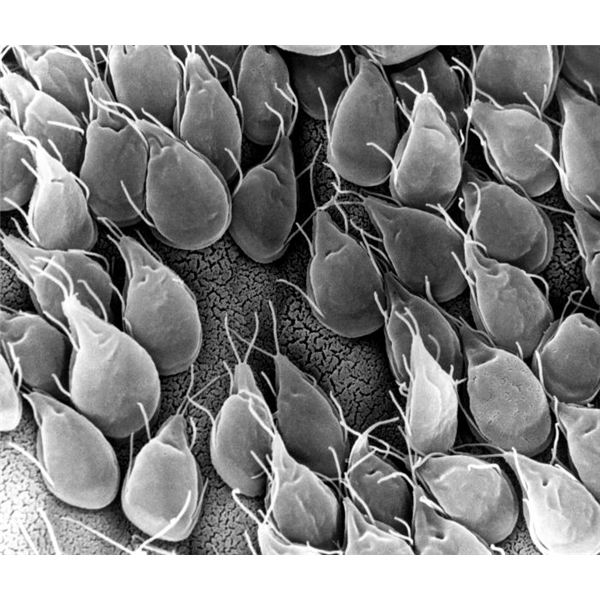
Giardia and Cryptosporidium

Common Symptoms
Diarrhea, abdominal cramps, gas, malaise, and weight loss are the most common symptoms caused by Giardia. Vomiting, chills, headache, and fever may also occur. These symptoms usually surface six to 16 days after the initial contact and can continue as long as one month.The symptoms of cryptosporidiosis are similar; the most common include watery diarrhea, abdominal cramps, nausea, and headaches. These symptoms occur within two to 25 days of infection and usually last one or two weeks; in some cases they stick around for up to a month.
Sources of Contamination
Giardia are often found in human, beaver, muskrat, and dog feces. Cattle feces appear to be the primary source of Cryptosporidium, although these parasites have also been found in humans and other animals. Drinking water sources become contaminated when feces containing the parasites are deposited or flushed into water. If treatment is inadequate, drinking water may contain sufficient numbers of parasites to cause illness. Other sources include direct exposure to the feces of infected humans and animals, eating contaminated food, and accidental ingestion of contaminated recreational water. The comparative importance of these various routes of exposure is unknown.
